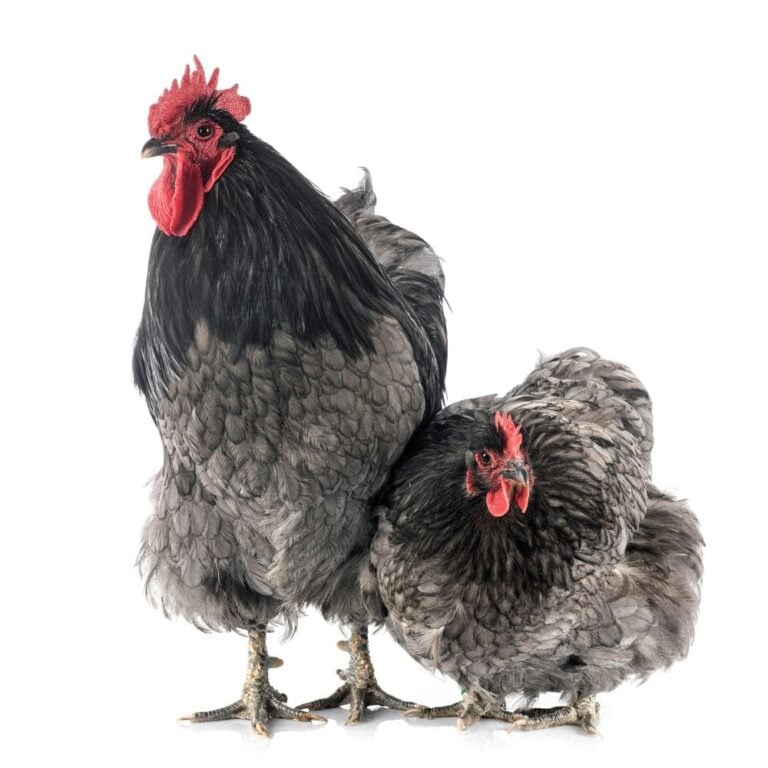These feathered creatures play essential roles on our farms and in our backyards (and sometimes on our tables), but do you know the facts that unravel hen vs chicken? What about pullets and cockerels…where do they fit in?
Maybe you’ve never thought about it, or maybe it’s kept you up all night! Either way, let’s take an informative journey to gain a better understanding.
I recall when I learned (as an adult, mind you) the difference between a heifer and a cow and a steer and a bull. It was an epiphany that I now feel privileged to know! I hope the same is true for you regarding chickens (or hens) after reading this fun and informative article.
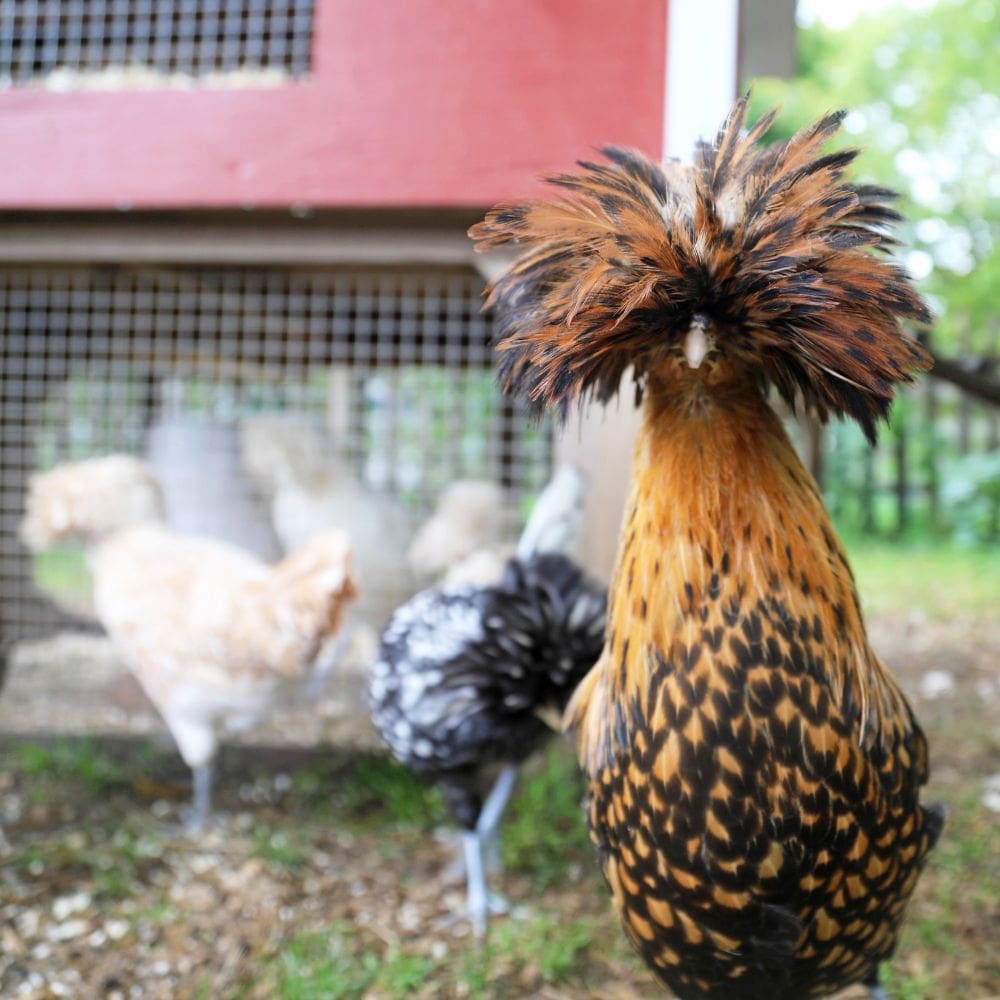
Hen VS Chicken – What is the Difference?
The big question. The answer is fantastic if I do say so myself. Basically, in the simplest form, a chicken is the “kind” that lumps all the differences into one pocket. When I think of hen vs chicken, I automatically think female. But that is not the case.
A hen is usually considered a mature female chicken that lays eggs. It’s sort of like a heifer and a cow in the bovine world. A heifer is a female Bovine that has not yet given birth. A cow, on the other hand, is a mature Bovine that has given birth.
So there you have it. But what about pullets, cockerels, and roosters? Where do they fit in? Read on!
Hens – The Laying Queens
Meet the leading ladies of the coop. These are not just girls or teeny boppers. They are the “women.”
Hens, as I mentioned above, are basically female chickens that have reached maturity. This is often thought to occur between 6 months and 1 year of age. Once they start laying eggs they can safely fit into this description and new title.
Known for their nurturing instincts and often falling into the broody hen category, they diligently tend to their eggs and chicks, ensuring their well-being and safety.
Hens typically lay eggs consistently throughout the year, making them the primary source of those delightful ovals of nutrition we enjoy at breakfast.
Want the best eggs ever? If you answered yes, then you should try Best Eggs Ever! Bundle: 8 Products For Your Best Eggs Ever!
Chickens – The Diverse Crew
Chickens, on the other hand, is a more general term that encompasses both male and female members of the flock. They come in various breeds and showcase a wide range of feather colors and patterns.
While not all chickens lay eggs, because the label encompass both genders, they contribute to the social dynamics of poultry and add diversity to the barnyard scenery. Obviously, you need both male and female (chicks and pullets, cockerels and roosters) to make the chicken world go round. 😊🐔
Chicks – Baby Chickens
Chicks are easy to explain. They are simply baby chickens. Both male and female alike – the word chick covers it all.
If they are newly hatched and still in the adorable state, then it’s safe to call them a chick! Baby chicks are hard not to love and make the world a better place for sure.
Pullets – The Future
Pullets are young female chickens that are yet to lay their first eggs. They represent the transition between chicks and mature hens. Teenagers, if you will (and you will…if you know how awkward pullets can be as they are physically transitioning into adulthood).
As pullets grow, they undergo hormonal changes, and by around 16 to 24 weeks of age, they begin their egg-laying journey. It’s an exciting time as they develop into full-fledged egg-layers and assume their roles within the flock.
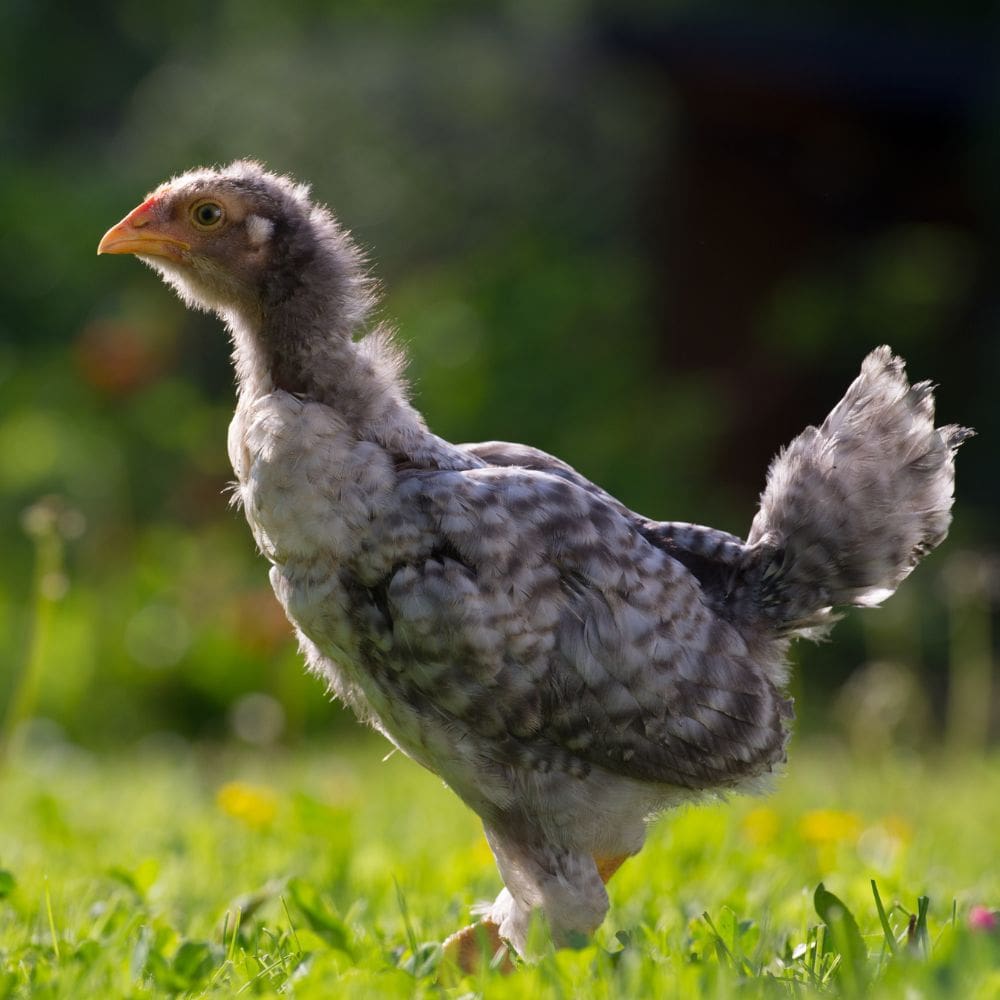
Cockerels – The Adolescents
A cockerel is a young male chicken that is still maturing. They might not be ready to take on the responsibilities of full-grown roosters yet, but they’re on their way. This category may also be less noticeable by just taking note of physical characteristics.
As they grow, you’ll notice them displaying signs of assertiveness and dominance as they figure out their place in the pecking order. When they start mating, or at least by one year of age, they can graduate to “Roosterville.” This, unfortunately, is often when they start exhibiting some aggression. The level of aggression can vary by breed of chicken, as well as be affected by how much you handle him from birth.
The grand tip of the day is to keep your cockerels (and all other chickens) friendly by treat-training them. This is simple to do but the rewards are great. Use a nutritious chicken treat, like Chicken Candy, and make friends with your flock. They will quickly and easily learn to love you, follow you, and be your best friend ❤️. Plus they are healthier and happier overall if you feed them good ingredients.
Roosters – The Crowning Leaders
Roosters, mature male chickens, are crowned with vibrant plumage and distinct tail feathers. They usually have more pronounced wattles and combs. They’re not egg-layers like hens, but their roles are equally essential in the coop.
Roosters serve as protectors and guardians of the flock and they have spurs. These masculine chaps also crow. Their crowing isn’t just a morning wake-up call; it also serves as an alarm to warn the hens and chickens of potential dangers.
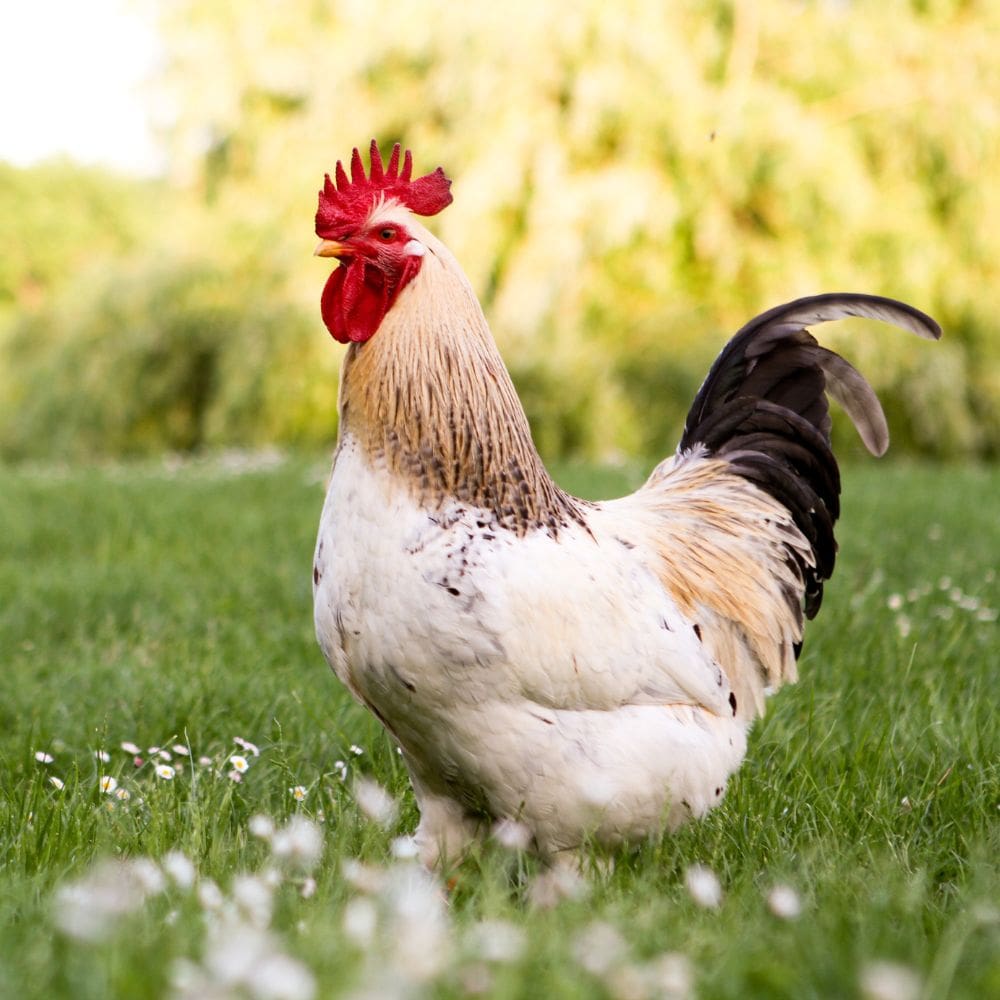
What Is A Capon?
It’s a word we rarely hear (and a situation we rarely see), so it’s no wonder you are asking. A capon is a male chicken that has been physically made to not be able to fertilize an egg (aka produce offspring). Essentially it’s like a steer (a bull fixed to be unable to reproduce).
A Capon is basically a rooster that is just kept as a pet and stripped of his manhood 😣. It’s for a good cause, however, as they prove to be less aggressive than an intact rooster. But, finding a vet that can, or will, do this might be very challenging.
Hen vs Chicken Summary
Will you be chastised by the chicken community if you don’t get all the labels correct? Heck no. You can say chicken or hen and no one will care, but it is nice to know the whole story isn’t it?
The next time you find yourself in the presence of these wonderful fowl, however, take a moment to appreciate the unique roles they play. From the egg-laying queens to the crowing leaders, each member of the crew brings something unique to the barnyard community.
Hens and chickens are more than just farm animals; they are oftentimes our best friends and the hardest workers on the land.
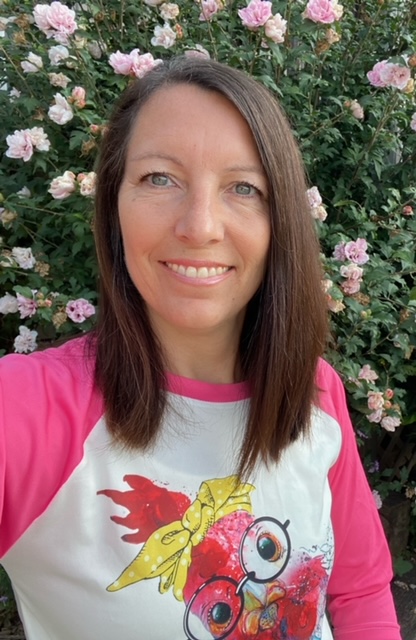
A happy wife, mother, teacher, writer, hobby farmer, lover of chickens, and contributor to Pampered Chicken Mama!

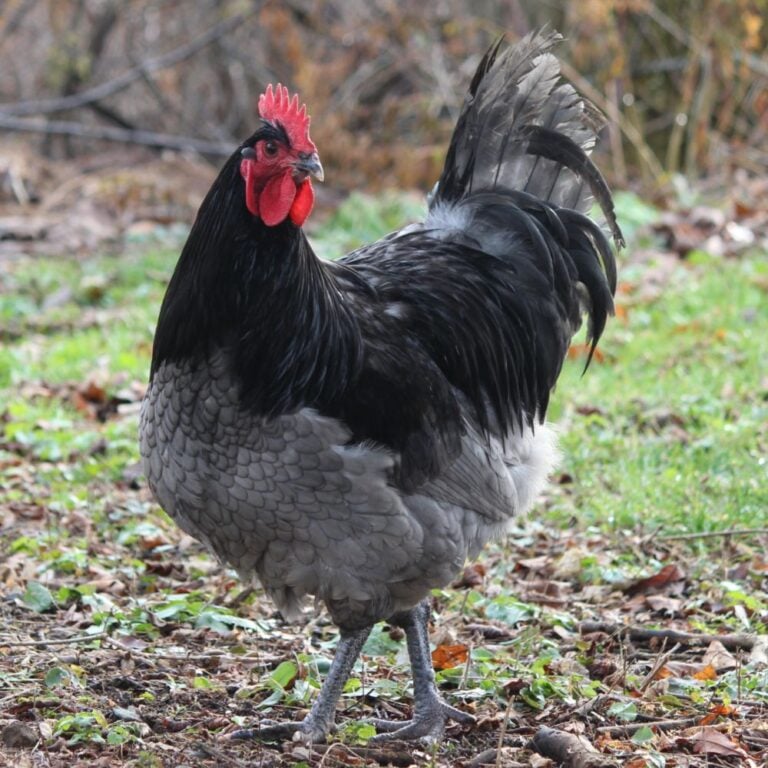
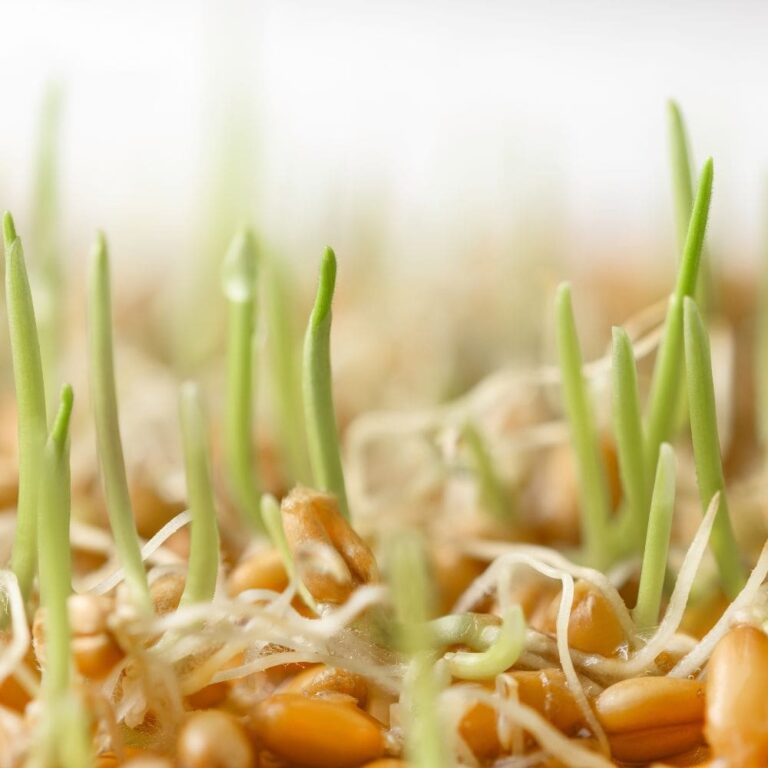
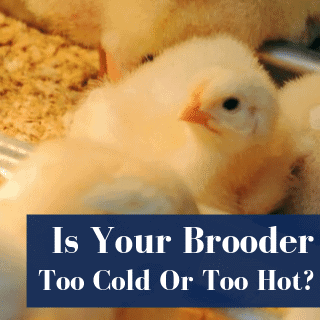
![5 Supplements For Healthier Eggs That Yield BIG Results For YOUR Health [Podcast]](https://thefrugalchicken.com/wp-content/uploads/2016/05/supplements-for-healthy-eggs-feature-min.jpg)
